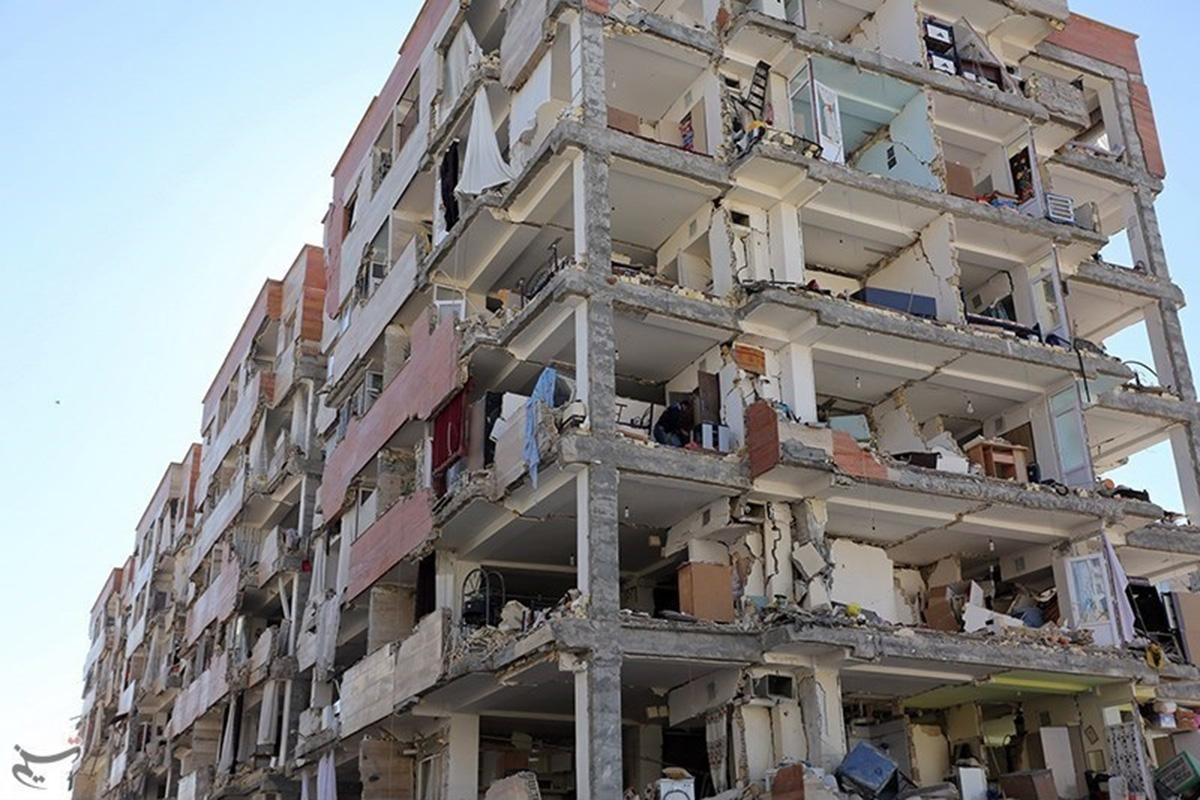Israel's offer of aid to quake victims in Iran, Iraq turned down
Israel has offered to send medical assistance for the Iraqi and Iranian victims of Sunday's earthquake through the International Committee of the Red Cross, Prime Minister Benjamin Netanyahu said Tuesday. An official with the Prime Minister's Office said the offer was rejected.
Sunday's powerful magnitude 7.3 earthquake was felt in several bordering provinces of Iran and Iraq and was even felt in Turkey and Israel. The Iranian province of Kermanshah was hit the hardest, with some 530 fatalities and over 5,000 casualties reported so far.
Addressing the Jewish Federations of North America's annual General Assembly in Los Angeles via video conference, Netanyahu said that as neither Iran nor Iraq maintains diplomatic relations with Israel, Jerusalem had offered to deliver aid to both nations via the Red Cross.
"I just saw the pictures of the destruction in Iran and Iraq from this week's earthquake. And I saw these heartbreaking images of men and women and children buried under the rubble. So I am proud to announce tonight that a few hours ago I directed that we offer the Red Cross medical assistance for the Iraqi and Iranian victims of this disaster.
"I’ve said many times that we have no quarrel with the people of Iran. Our quarrel is only with the tyrannical regime that holds them hostage and threatens our destruction. But our humanity is greater than their hatred. Israel continues to be a light unto the nations and this is what I am proud of. And all of you can be proud of Israel's morals and Israel's might."
An official at the Prime Minister's Office said Tuesday that regrettably, Israel's offer was immediately rejected.
"This shows the true face of the Iranian regime," he said.
Iran on Tuesday called off rescue efforts saying there was no longer any hope to find survivors from the massive tremor.
Tehran has so far declined offers of foreign assistance to deal with the aftermath of the earthquake, which officials said damaged 30,000 homes and completely destroyed two villages.
The U.S. government expressed its condolences, a White House spokesman said.
"The United States expresses its sincere sympathy and condolences to those affected by the earthquake in northern Iraq and Iran," he said, adding Washington had not received requests from the Iraqi government for help.
Exhausted and exposed to freezing cold, survivors of the earthquake begged authorities for food and shelter on Tuesday, saying aid was slow to reach them.
"We are hungry. We are cold. We are homeless. We are alone in this world," a weeping Maryam Ahang, who lost 10 members of her family in the hardest hit town of Sarpol-e Zahab, told Reuters by telephone.
"My home is now a pile of mud and broken tiles. I slept in the park last night. It is cold and I am scared."
Iranian Supreme Leader Ayatollah Ali Khamenei urged state agencies on Tuesday to speed up aid efforts. President Hassan Rouhani paid a visit to the stricken region, promising to resolve "the problems in the shortest time."
In some areas, no building was left standing and those that were had been deserted for fear they could come crashing down at any moment. Houses in impoverished Iranian villages are often made of concrete blocks or mudbrick that can quickly crumble and collapse in a strong quake.
State television aired footage of weeping villagers carrying away bodies wrapped in bloodied blankets and bed sheets and scrabbling with their bare hands through rubble in search of friends and relatives.
On the Iraq side of the border, nine people were killed and over 550 injured, all in the northern Kurdish provinces.
Television showed rescue workers combing through the rubble of dozens of villages immediately after the quake. But by Tuesday morning Iranian officials said there was no longer any likelihood of finding survivors and called off the search.
Hospitals in nearby provinces took in many of the injured, state television said, airing footage of survivors waiting to be treated. Hundreds of critically injured were dispatched to hospitals in Tehran.
Iran's Red Crescent said emergency shelter had been provided for thousands of homeless people but a lack of electricity and water, as well as blocked roads, hindered aid supply efforts.
"People in some villages are still in dire need of food, water and shelter," said Faramraz Akbari, governor of Qasr-e Shirin county in Kermanshah province.
State TV showed dozens of green and white tents dotting Sarpol-e Zahab, many containing two or three families. Groups clustered around bonfires trying to warm themselves.
The mayor of the city of Ezgeleh said 80% of its buildings had collapsed. Survivors desperately needed tents with elderly people and babies as young as a one-year-old sleeping in the cold for two straight nights."
Some people were angry that among the collapsed buildings were homes built under an affordable housing scheme initiated in 2011 by then-President Mahmoud Ahmadinejad.
"The people should build their own houses. They build better houses than those built under projects and schemes," Rouhani said in Kermanshah, state TV reported. "I promise you, those responsible will be punished."
Iran is crisscrossed by major geological fault lines and has suffered several devastating earthquakes in recent years, including a 6.6 quake in 2003 that reduced the historic southeastern city of Bam to dust and killed some 31,000 people.
Source: Israel Hayom

